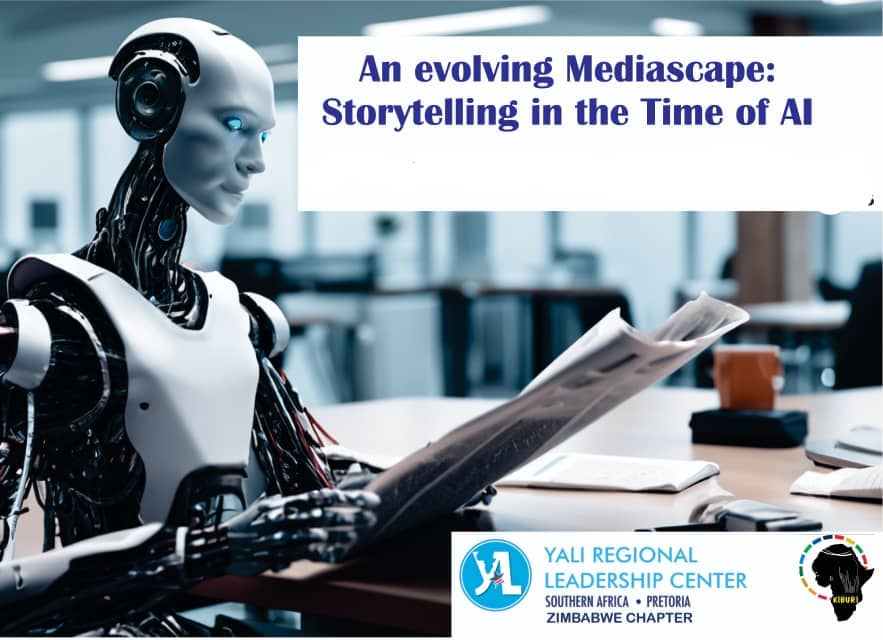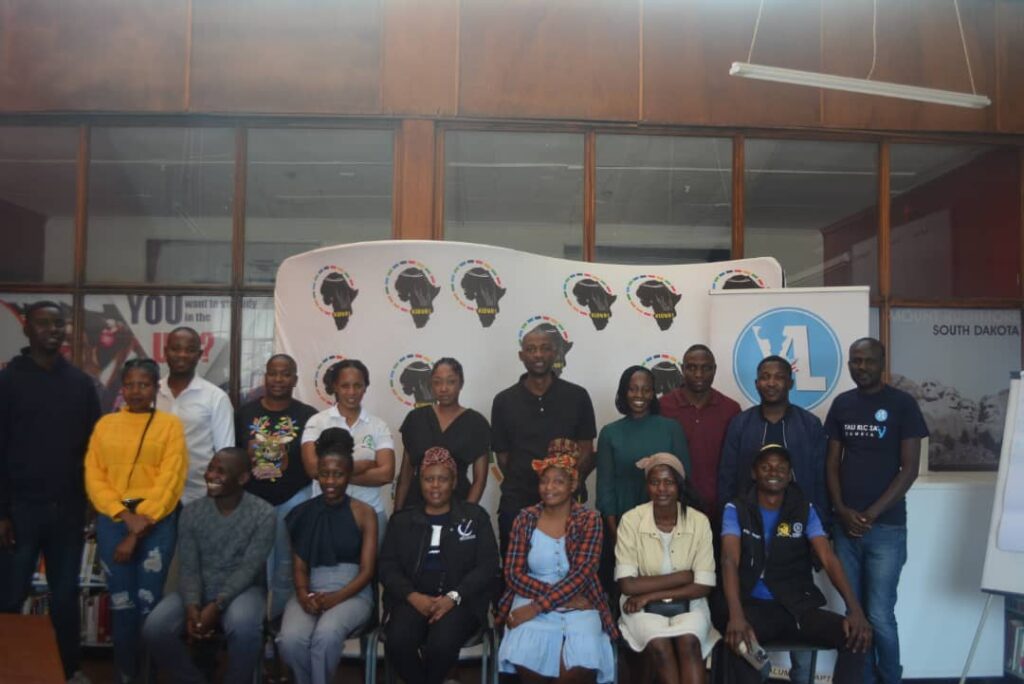By Delicious Mathuthu
Gweru, Zimbabwe – Content creators and Civil Society Organisations say Zimbabwe and Africa should embrace the advent of Artificial Intelligence (AI), with caution, or risk being left behind as it takes centre stage in business and information management.
This came out during a recent workshop organized by the Young African Leaders Initiative (YALI) Zimbabwe Chapter, in partnership with Africa Kiburi, a technologies solution company, on Friday (26/07/2024) on the intersection of AI and narrative storytelling.
The event, titled “An Evolving Media landscape: Storytelling in the AI era,” brought together content creators, writers, and thinkers from Gweru to explore AI’s opportunities and challenges for the future of storytelling, emphasising the need for Zimbabwe to embrace AI technology while addressing its challenges.
Participants stressed that Zimbabwe and Africa must invest in Information Technology to avoid being left behind, highlighting the importance of promoting local innovative talents in technology and focusing on cyber-security.
While acknowledging AI’s advantages, such as improved quality of content and time-saving, participants also warned against the risk of mental colonization and the perpetuation of predetermined rhetoric.
As a way forward, participants recommended educating each other about AI, starting AI education from a young age as well as adopting and participating in AI development.
“Lets educate each other as we run the risk of being overwhelmed if we are not prepared. let’s prepare for it, we are in the internet age,” one of the participating journalists said.
“We can’t do without it, the human advantage is that we feed it with information that it uses, so it only analyses what we give it and the human factor will always be there,” another journalist said.
From the CSO, Fadzai Kanyai said there is need to include AI subjects in the education system.
“For the older generation it may be a little late but for the upcoming generations I think on issues to do with AI we need to catch them young and make sure it’s mainstreamed in our schools, in our curricular starting at lower levels, not to start at college level,” she said.
Facilitating the workshop, YALI alumni, Juliet Mucharozva, explained what AI is and, more so, outlining its advantages and disadvantages with the participants.
Present was also YALI Zimbabwe Chapter Coordinater, Gladman Chikwari who explained how AI works; and Africa Kiburi’s Mayibongwe Pride, who explained how AI adapts to user specific needs.
Meanwhile, researchers say the adoption and development of AI in Africa is still in its early stages, with its unique challenges and opportunities.
While participants noted that AI efficiency in Africa is hindered by the dominance of international languages, creating challenges for African languages, they suggested developing datasets for African languages, creating language-specific AI models, and promoting language diversity and inclusivity in its design, not the western.






